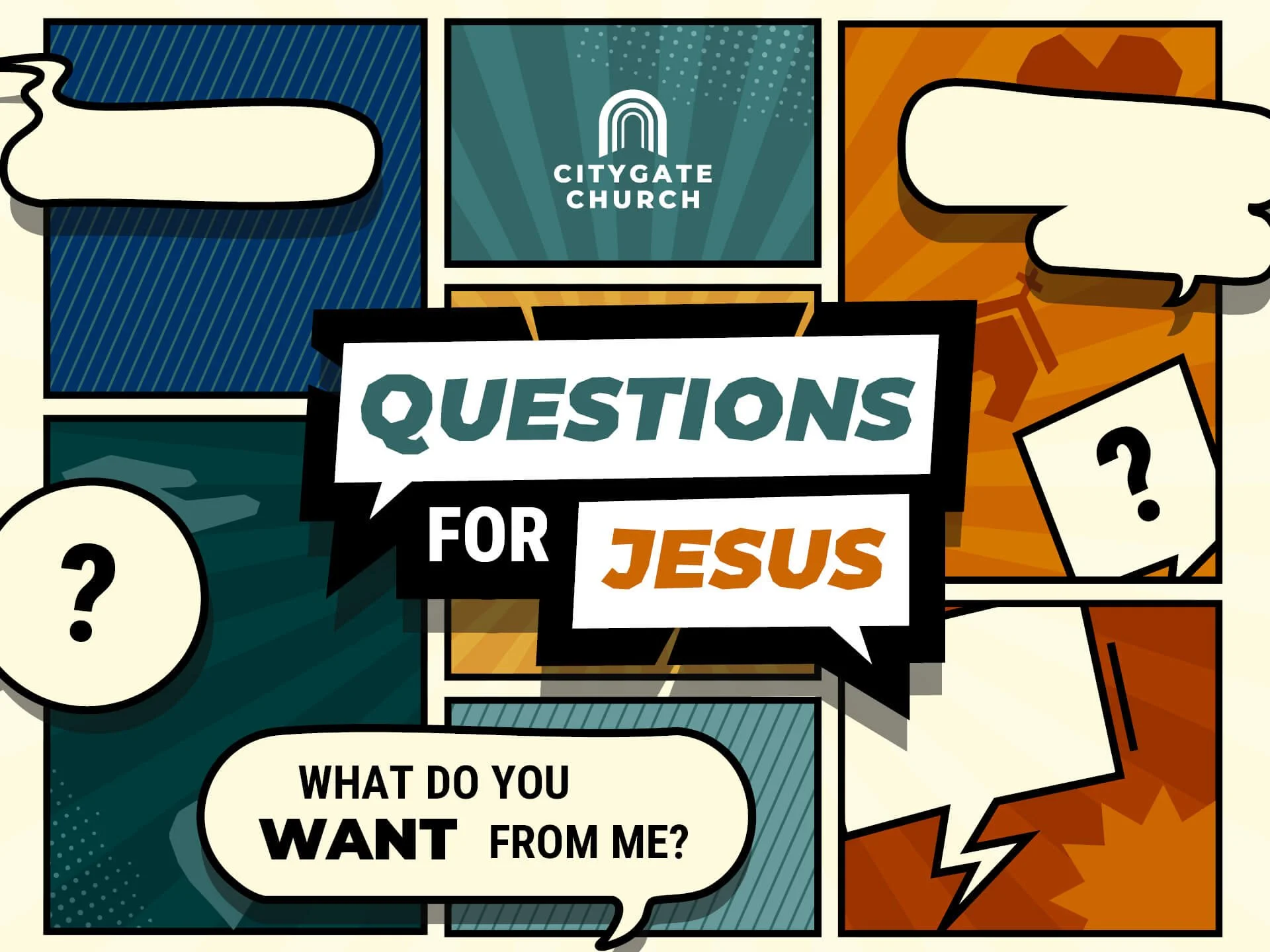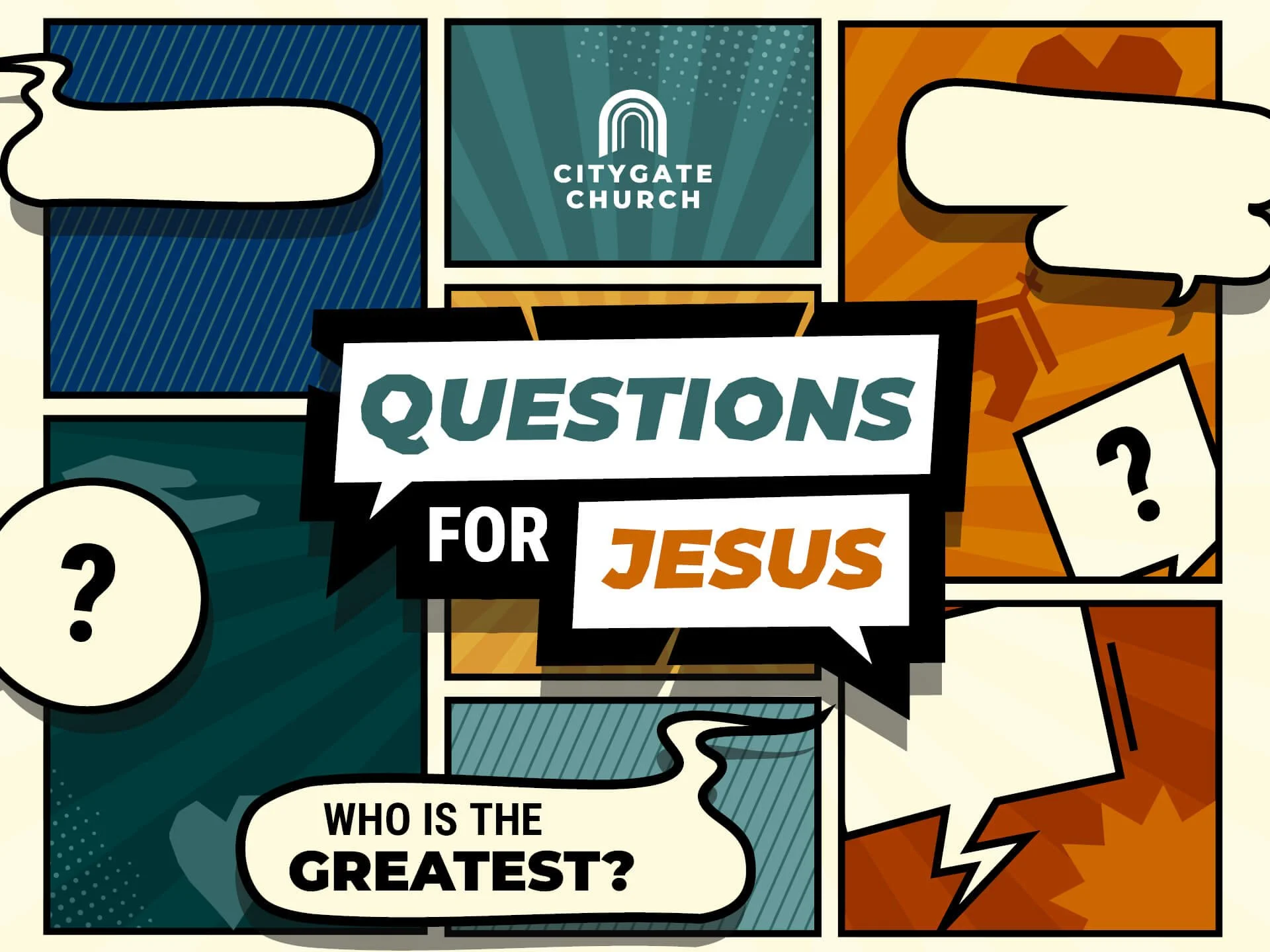Questions for Jesus | Can You Really Forgive Me?
About this series:
In each of the gospels we find Jesus asking questions of his disciples, the crowds and his opponents. And we also find Jesus being asked questions - by his disciples, the crowds and his opponents. Here, we will take 10 questions people asked of Jesus, the first from Luke’s gospel to set up the series and then the rest from Matthew’s gospel.
As well as working through the specific passages, we will aim to encourage people to consider what questions they would like to ask Jesus. The hope is that by looking at Matthew’s gospel in this way, we will see more clearly who Jesus is, be inspired to follow him and learn to be honest about our own questions as we grow to become more like him.
About this talk:
Chapter 9 follows a series of remarkable healings, culminating with the healing of two demon-possessed men. From there Jesus crosses the Sea of Galilee and returns to Capernaum, which he has made his home town (see 4:13). The story in 9:1-8 appears to be the same one recorded in Mark 2:3-12 and Luke 5:18-26. There we are told that the men who brought the paralysed man lowered him through the roof because there were so many people present that they could not get him to Jesus (Luke 5:18-19).
We’re not told whether these men are his friends or not (they are simply described as “some men”). Maybe they simply knew about him, felt for him, had witnessed some of what Jesus was doing and in a moment of possibility thought Jesus might heal him. Neither do we know whether he had asked to be taken to Jesus. Either way, their determination to help this man get to Jesus is admirable. And in the end he gets a whole load more than even he or his courageous friends had hoped for.
Matthew records the teachers of the law saying to each other, “This fellow is blaspheming!” while Mark and Luke state the exact reason for why they believed Jesus to be blaspheming: “Who can forgive sins but God alone?” (Mark 2:7; Luke 5:21). We should appreciate that their horror at what Jesus said to the paralysed man was completely understandable to those who were zealous to maintain purity among the people and to protect the honour of God’s name - there are some things that only God can do! In response to Jesus saying to the (still) paralysed man, “Take heart, son; your sins are forgiven,” the teachers of the law are outraged. Their theology is correct: “Who can forgive sins but God alone.” Sure, we can forgive someone for what they have done to us, but no one other than God can forgive someone for what they have done more generally.
We are not told whether Jesus intended to heal the paralysed man or not, but the way the narrative reads appears to suggest that his act of healing was in response to the objections of the teachers of the law. Either way, Jesus backs up his authority to forgive with a demonstration of his power to heal, with the result that “When the crowd saw this, they were filled with awe; and they praised God.” And thus the words of the teachers of the law against him into a statement about him: that he is indeed God who alone can forgive sins. This short, dramatic story, is part of the picture Matthew is building to show who Jesus is and why it is right to believe that Jesus is, in fact, God incarnate.
But in the end, the question about whether Jesus is God who can forgive sins becomes a question about whether he can forgive my sin. Which provides the perfect opportunity to explain who he is, what he came to do, why he would want to have a relationship with you and me, why forgiveness is so important in enabling that relationship and how he made that forgiveness possible.
Audio only
Discussion Questions
Main Text: Matthew 9:1–8
Key Truth: God forgives not reluctantly, but willingly—and our greatest need is to be reconciled with Him.
PART 1: INTRO & CONTEXT (5 minutes)
Read aloud: Matthew 9:1–8 (let someone read)
Set the Scene:
"Imagine being paralyzed, desperate for healing. You and your friends make a massive effort to see Jesus—but instead of healing your body, He says: 'Take heart, son; your sins are forgiven.' What would go through your mind?"
Brief Teaching Points:
• People expected physical healing—but Jesus went deeper: to the root need—forgiveness.
• The religious leaders were shocked because only God can forgive sins.
• Jesus demonstrates both His divinity and His desire to forgive.
PART 2: DISCUSSION QUESTIONS (20 minutes)
Theme 1: Our Deepest Need is Forgiveness (Matthew 9:2–3)
"Take heart, son; your sins are forgiven."
• Q1: Why do you think Jesus forgave the man's sins before healing his body?
• Q2: What are some things we often treat as our biggest needs? How do these compare to the need for forgiveness?
Theme 2: Jesus Has the Authority to Forgive (Matthew 9:6)
"But I want you to know that the Son of Man has authority on earth to forgive sins."
• Q3: What does this passage tell us about who Jesus is?
• Q4: How does knowing Jesus has full authority to forgive affect the way we view our sin?
Theme 3: The Heart of God in Forgiveness (Exodus 34:6, quoted in your notes)
"The Lord, the Lord, the compassionate and gracious God, slow to anger, abounding in love and faithfulness…"
• Q5: How does this description of God challenge or encourage your view of how He sees you when you've messed up?
• Q6: Do you ever find it hard to believe that God wants to forgive you? Why?
PART 3: REFLECTION & APPLICATION (5 minutes)
Reflection Thought:
God doesn't forgive based on your progress, but on the basis of the purity of Jesus' blood.
• Invite silent reflection: "Where in your life do you feel you still carry guilt or shame? Have you received God's forgiveness there?
Practical Application:
• Challenge: This week, make time to sit with God and confess one area you've held back, trusting that He truly forgives.
• Optional Pair Share: If comfortable, invite participants to share one area they want prayer for—especially where they need to receive or extend forgiveness.
Closing Prayer:
Lord, thank You for seeing deeper than our surface needs. Thank You for forgiving us not because You have to, but because You love to. Help us to receive Your mercy with joy and extend it to others freely. Amen.












